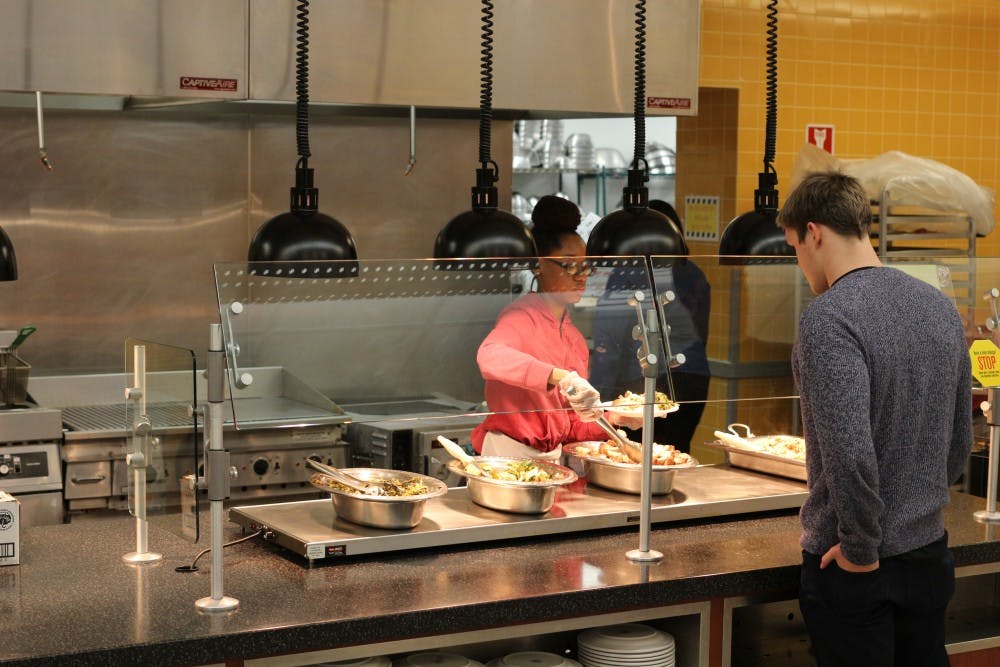
Class of 1920 Commons is currently one of two dining halls located west of 38th Street, along with Hillel. (File Photo)
Credit: Gregory BoyekMany students part ways with their meal plans after freshman year, for countless reasons: meal plans are expensive, there are limited options for those with dietary restrictions, and the operating hours often conflict with students’ schedules, to name a few.
Going off the dining plan also allows students to gain responsibility by cooking for themselves and finding a way to eat regular meals. But for those who are athletes, enjoy ready meals, or do not have the time or desire to cook, getting off the dining plan is simply not feasible.
If Penn Dining wants more students on the dining plan, there are several steps that need to be taken. The first is extending dining hall hours. The cost of dining plans is hefty, and there should be more dining halls that have late-night hours. Hill House and the Cafe at McClelland have late night hours, but these options are only in freshman college houses. If students are going to stay on the dining plan after freshman year, dining halls like 1920 Commons and New College House must stay open later in order to increase accessibility to upperclassmen.
Currently, the sole on-campus dining option that is open to students past midnight is Mark’s Café, which closes at 2 a.m. from Sunday through Thursday. While this one retail dining option is convenient for students who are working late, it is not enough to meet the demands of a University that has ranked second among colleges with the latest student bedtimes.
Penn should look to follow the lead of Columbia University, which began to serve students 24 hours per day in the fall of 2017. Now, at least one dining hall is open at all times for Columbia students. The Columbia Daily Spectator reported that this change came after students requested "more readily-available community gathering spaces.”
Another step that should be taken is adding more options for students with dietary restrictions. While there are vegetarian and vegan options available at every dining hall, they are limited. In addition, there aren’t enough options that meet religious dietary obligations. While Kings Court English House has halal options, its location is not central to campus, and those who do not live in the dorm have to go out of their way to eat. This presents a challenge for students who eat halal. Religious dietary options should be available at more dining halls.
Ultimately, Penn Dining must increase the scope of meal plans. This includes extended late night options at more dining halls and more options for those who have dietary restrictions. Making dining at Penn more flexible will ultimately make life at the University much easier.
Editorials represent the majority view of members of The Daily Pennsylvanian, Inc. Editorial Board, which meets regularly to discuss issues relevant to Penn's campus. Participants in these meetings are not involved in the reporting of articles on related topics.
The Daily Pennsylvanian is an independent, student-run newspaper. Please consider making a donation to support the coverage that shapes the University. Your generosity ensures a future of strong journalism at Penn.
Donate



